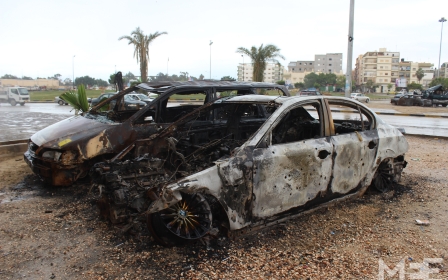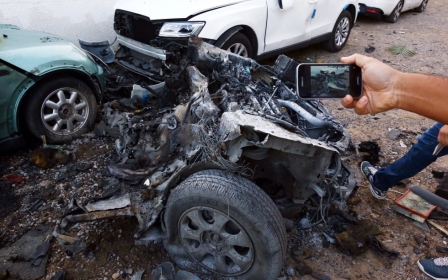Benghazi clashes rage as Ansar al-Sharia holds off army
Clashes on Monday between pro-government forces and Ansar al-Sharia-linked militants in the eastern city of Benghazi killed 16 people and wounded dozens, security sources and medics said.
The casualties came after the Libyan army launched an offensive in the Leithi district, which is seen as a stronghold of Ansar al-Sharia, local daily Libya Herald reported.
Forces loyal to former general Khalifa Haftar and the Tobruk-based Prime Minister Abdullah al-Thani have been engaged in a months-long battle against groups like Ansar al-Sharia who they have dubbed “Islamists” and “terrorists.” While in recent weeks they have managed to seize large parts of the city and make large gains, pockets are still controlled by Ansar al-Sharia and other associated groups that first began gaining a foothold in the city in early 2012.
The Benghazi Medical Centre said it received the bodies of seven people and 35 wounded in the clashes, while al-Jala hospital said it took in four bodies and 25 wounded.
Medical sources said the casualties were all from Haftar's ranks and pro-government forces. The rival militias rarely report their casualties.
Farther east, in troubled city of Derna, where Islamic State-allied groups have taken hold in recent months, five soldiers were killed on Monday when gunmen attacked a checkpoint in the city's western suburb of Dahr al-Ahmar, a military spokesman said.
Three years after former leader Moamer Gaddafi was toppled and killed in a NATO-backed revolt, Libya is awash with weapons and powerful militias, and run by rival governments and parliaments.
New MEE newsletter: Jerusalem Dispatch
Sign up to get the latest insights and analysis on Israel-Palestine, alongside Turkey Unpacked and other MEE newsletters
Middle East Eye delivers independent and unrivalled coverage and analysis of the Middle East, North Africa and beyond. To learn more about republishing this content and the associated fees, please fill out this form. More about MEE can be found here.




